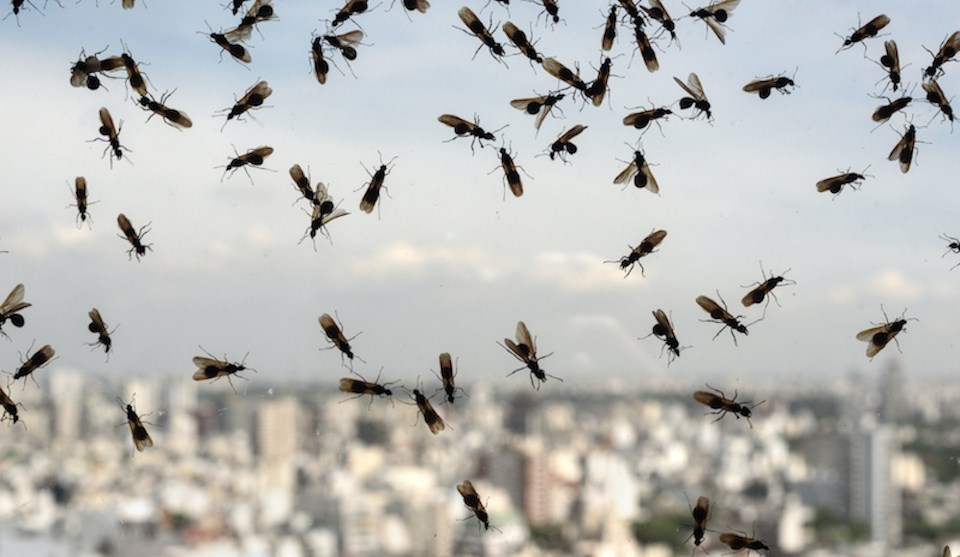It's the season for winged insects.
While it isn't an official holiday nor actual date, "flying ant day" is a fairly notorious event in the Metro Â鶹´«Ã½Ó³»region.
There are a number of days each year, typically in the summer season, that seem to see an abnormal amount of small bugs take to the skies.
Flying ant season - otherwise known as the great 'ant-pocolypse,' or, more commonly, 'flying ant day' - is the time of year when swarms of flying ants procreate. Of course, this doesn't take place all on one day, but it often feels as if the chaos manifests out of thin air; one day there isn't an ant in sight and the next they are virtually everywhere.
However, not all ants take flight at the same time.
Types of flying ants
According to Â鶹´«Ã½Ó³»pest control service , different types of flying ants emerge at different times of the year.
Flying ants in the early spring are most likely carpenter ants whereas winged ants in the late spring or summer could be odourous house ants, pavement ants, thatching ants, or field ants. Cornfield ants typically come out in the late summer.
If the flying bugs are "very large, really weak flyers, and they are emerging in the late summer evening," then they are probably pacific dampwood termites and not ants at all, notes the pest control service.
Winged ants aren't a separate ant species. All species of ants have a winged form, which is created once the colony is mature, with a male and female form of which the latter is larger. In a colony there are queens, workers, foragers, and swarmers. Winged ants are swarmers and their main purpose is to propagate, after which all the males die.
With files from Elana Shepert.





